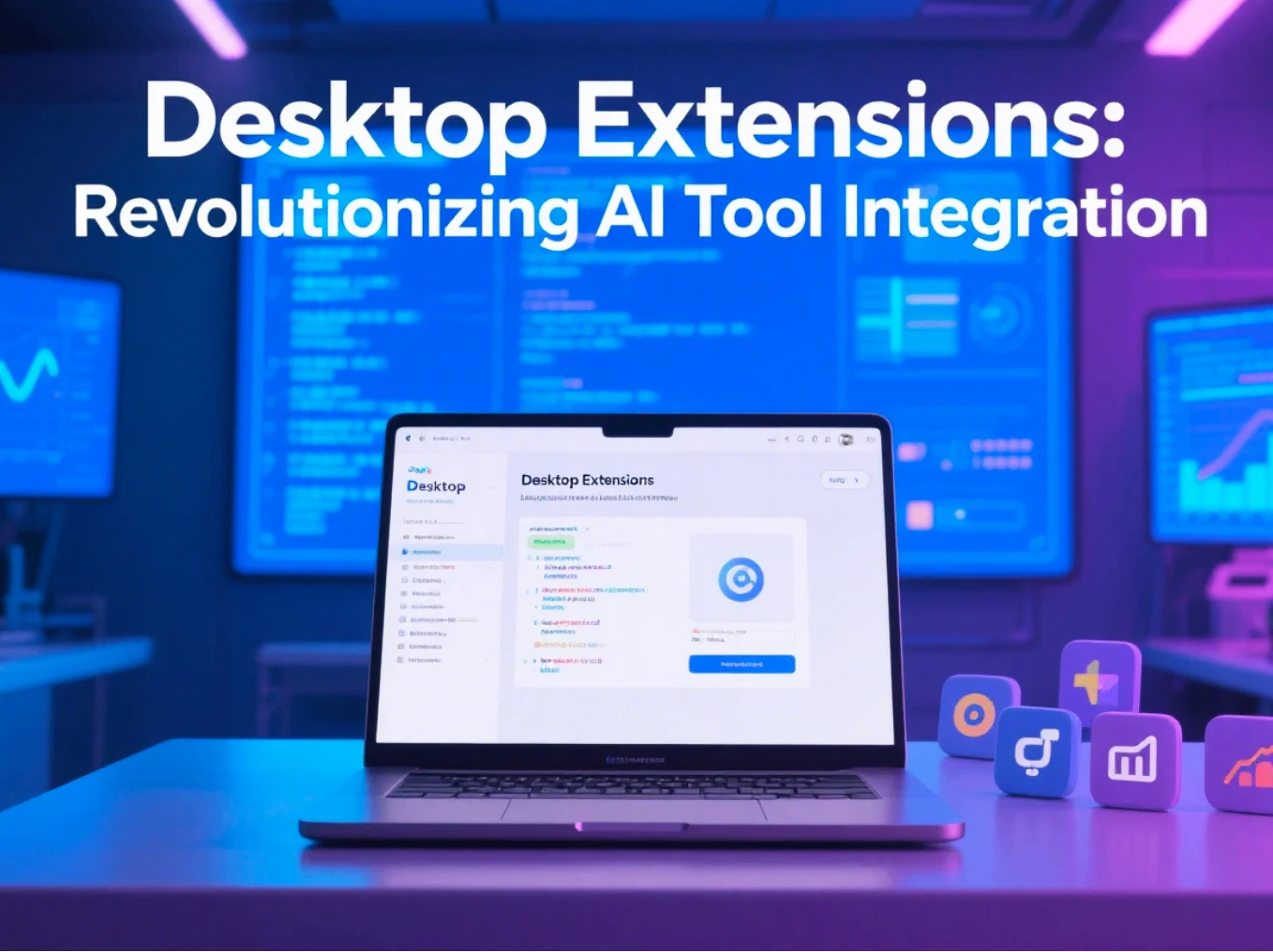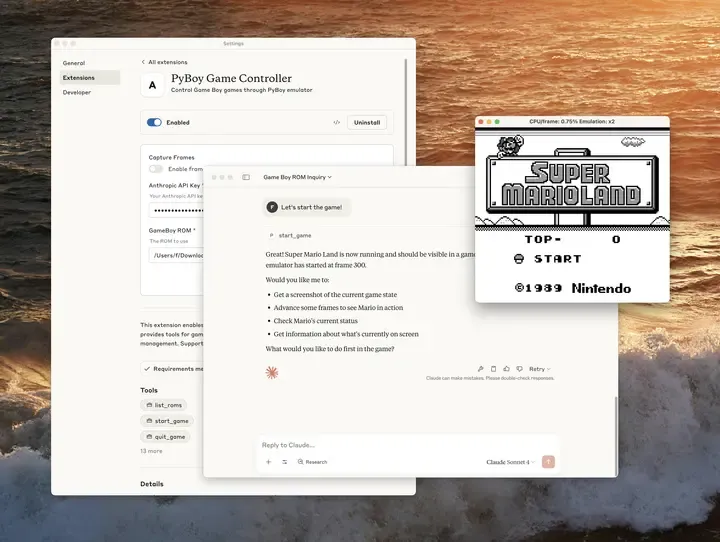
What is MCP Desktop Extensions (DXT)
Learn how Desktop Extensions (DXT) and MCP endpoints are transforming the way we deploy and manage AI capabilities for Claude Desktop and other applications.
What are Desktop Extensions?
Desktop Extensions (DXT) represent a paradigm shift in how we interact with local AI tools. Introduced by Anthropic, these innovative packages transform complex MCP (Model Context Protocol) server installations into simple one-click experiences.
The Problem DXT Solves
Before Desktop Extensions, installing MCP servers was a technical nightmare:
Traditional Installation Challenges
- Developer tools required: Users needed Node.js, Python, or other runtimes
- Manual configuration: Each server required editing JSON configuration files
- Dependency conflicts: Package version mismatches caused installation failures
- No discovery mechanism: Finding useful MCP servers meant searching GitHub
- Update complexity: Keeping servers current required manual reinstallation
How Desktop Extensions Work
Simple Three-Step Process
- Download: Get a
.dxtfile from a trusted source - Double-click: Open the file with Claude Desktop
- Install: Click "Install" and you're done!
Technical Architecture
A Desktop Extension is essentially a ZIP archive containing:
extension.dxt
├── manifest.json # Extension metadata and configuration
├── server/ # MCP server implementation
├── dependencies/ # All required packages/libraries
└── icon.png # Optional: Extension icon
DXT and MCP: A Symbiotic Relationship
Desktop Extensions are essentially convenient wrappers around MCP endpoints. An MCP endpoint exposes a specific capability—such as transcription, code formatting, or data querying—through an HTTP interface. By packaging these endpoints into a self-contained .dxt archive, developers make them:
- Discoverable: Users can browse endpoints like regular extensions in a directory.
- Installable: No environment setup; the endpoint spins up with the extension.
- Updatable: When the MCP service improves, shipping a new
.dxtupdates the endpoint for all users.
In short, MCP provides the execution layer, while DXT delivers the user-friendly packaging and distribution.
Key Benefits of Desktop Extensions
For Users
- Zero technical knowledge required: No terminal, no configuration files
- Secure by default: Sensitive data stored in OS keychain
- Automatic updates: Extensions update seamlessly in the background
- Curated experience: Quality-checked extensions in official directory
For Developers
- Simplified distribution: Package once, run anywhere
- Built-in runtime: No need to worry about user environment setup
- Rich metadata: Comprehensive extension information and capabilities
- Cross-platform support: Works on Windows, macOS, and Linux
The DXT Ecosystem
The Desktop Extensions ecosystem is rapidly growing with:
Extension Categories
- Development Tools: Code formatting, git integration, project management
- Data Analysis: Database connections, data visualization, analytics
- File Management: Local file operations, cloud storage integration
- Productivity: Calendar integration, note-taking, task management
- AI Enhancement: Model integrations, prompt libraries, workflow automation
Developer Tools
Anthropic provides a comprehensive toolchain:
# Install the DXT CLI
npm install -g @anthropic-ai/dxt
# Initialize a new extension
dxt init
# Package your extension
dxt pack
Security and Trust
Desktop Extensions prioritize security through:
- Sandboxed execution: Extensions run in controlled environments
- Permission systems: Clear declaration of required capabilities
- Code review process: Curated directory ensures quality
- Automatic scanning: Built-in security vulnerability detection
Community and Innovation
The DXT community is driving innovation through:
Open Source Collaboration
- Shared repositories: GitHub-hosted extension libraries
- Community reviews: Peer feedback and code improvements
- Documentation contributions: Collaborative knowledge building
- Best practices sharing: Community-driven development standards
Popular Extensions
- File Manager Pro: Advanced local file operations with AI context
- Git Integration: Seamless version control within Claude workflows
- Database Explorer: Visual database querying and analysis
- Calendar Sync: Smart scheduling with AI assistance
- Note Taker: Intelligent note organization and retrieval
The Future of AI Tool Integration
Desktop Extensions represent just the beginning. The format is designed to be:
- Universal: Supporting multiple AI applications beyond Claude
- Extensible: Growing capabilities as the ecosystem matures
- Open: Community-driven development and innovation
Getting Started
Ready to explore Desktop Extensions? Here's how:
For Users
- Update to the latest Claude Desktop version
- Browse the Extensions section in Settings
- Install your first extension and experience the simplicity
For Developers
- Review the DXT specification
- Submit your extension to the directory
Conclusion
Desktop Extensions are democratizing AI tool enhancement, making powerful MCP servers accessible to everyone—not just developers. As the ecosystem grows, we're witnessing the emergence of a vibrant marketplace for AI productivity tools.
The same creativity that brought us thousands of MCP servers can now reach millions of users with just one click. Welcome to the future of AI tool integration.
Ready to dive deeper into Desktop Extensions? Explore our mcp sever directory to get started.
Share this article
Found this helpful? Share it with others!
